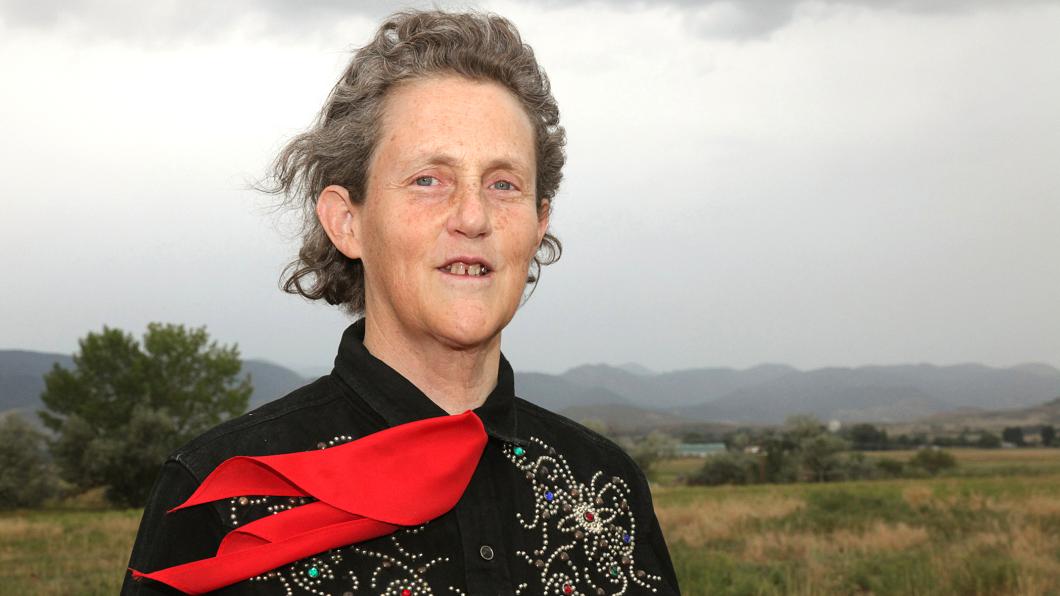
A child's gifts and passions are more important than any label
Photo by Rosalie Winard
By Louise Kinross
Temple Grandin says parents are preventing their autistic children from learning basic life skills because they're stuck in a deficit mindset.
"One of the biggest problems I'm seeing is what Debra Moore calls 'label-locking,' says Temple, a professor of animal science at Colorado State University and autistic activist and author. Temple and psychologist Debra Moore released a new book this month called Navigating Autism and Temple is gave a keynote talk at the Bloorview Research Institute Symposium on Nov. 15.
"So many parents of fully verbal kids and teens won't let them do the most basic stuff," she says. "I talked to two moms recently who won't let their kid run into a store and buy something while they're sitting out front watching. I had a meal with a family and found out their 11-year-old son had never used the men's bathroom by himself. I explained what the rules were during the meal and after I said: 'Okay guy, go use it,' and he's been using it ever since. It was a quiet restaurant that wasn't busy so it was safe. The problem is that parents aren't looking at the whole child."
In Navigating Autism, Temple and Debra introduce mindsets that are critical for clinicians and parents. The first is: 'Every child is more than autism,' noting that a child's personality is not defined by autism and every autistic child is unique. "The most effective educators and clinicians don't think in terms of what they see wrong," the authors write. "They don't focus on fixing." Instead, clinicians are advised to ask parents "What delights you about your child?"
That's because they say any interventions must build on a child's strengths and interests. "My mother always encouraged my ability in art—always, always, always. I loved to play with kites. I spent hours experimenting with them and building them. These were positive things that I did.
"Another mindset in our book is developing kids' strengths. For me it was art. For another child it might be math. For a severely impacted child it might be learning to eat with utensils and dressing themselves. Our book is aimed at getting parents and clinicians to change so that they see the whole child and appreciate their unique qualities."
Navigating Autism suggests that too often kids aren't exposed to new activities and environments where they can develop interests. Temple says her career in animal science, where she designs livestock handling systems, was seeded in summers she spent as a teen on her aunt's farm.
"The other thing I learned at my aunt's ranch was driving. I got exposed to cattle. But if I hadn't learned how to drive three miles on a dirt road to pick up mail, working in the cattle industry wouldn't have been possible. Of course learning to drive took me longer. I did about 200 miles on dirt roads for six weeks before we even touched traffic."
Navigating Autism emphasizes that there's nothing wrong with uncommon interests. "Let's say your child is interested in trains. Maybe they end up driving an antique locomotive or working as a tour guide at a railroad museum. Those are jobs. I've worked with skilled trades people who were flunking out of school, took a welding class, and now own their own shop and patent stuff and sell it around the world. But they couldn't do algebra."
Temple wants skilled trades and other hands-on learning brought back into schools. "I'd like to see auto shop and woodworking and metal shop as well as theatre, music, sewing and cooking. They expose kids to possible career options. With theatre as a child, I wasn't interested in being in the play, but I loved making costumes and scenery and that could have translated into a job."
Navigating Autism stresses that a university degree doesn't guarantee life success. One of the recommended mindsets is preparing kids for the real world.
Temple says parents put too much emphasis on academics today and not enough on chores, hobbies and helping their kids get part-time jobs.
"I talk to parents all the time and I'll ask 'What about getting a job?' and they'll say 'We're thinking about it.' Three places where I've seen kids have success are an auto parts shop, an ice cream shop and an office supply shop. These are relatively quiet environments and with auto parts and office supplies, if you get to know all the products, you're really appreciated. Obviously we're not thinking about a job in a McDonald's take-out window or a chaotic store at Christmas time."
Temple says it's common to see young adults graduate from college with advanced degrees who have never had a job. "These are fully verbal kids. I want them to have at least two jobs under their belt before they leave."
Temple says her career has given her life meaning. "If I didn't have an interesting career I'd be miserable. That's why I want these kids to get into a good job they'll like."
Temple is concerned that video games are derailing many autistic youth. "These video games are so addictive, they're designed that way. In an earlier book The Loving Push, Debra and I reviewed the research on video games and the results are hideous. I'm not seeing autistic kids becoming video game designers or programmers. I'm seeing them going down into their basement, instead of going out and having a life."
Like this interview? Scroll down to the blue banner and sign up for our monthly BLOOM e-letter. It combines family voices and expert advice on parenting children with disabilities, plus news, opinion pieces and new books.